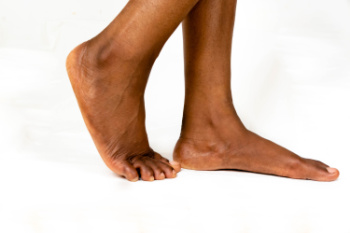
Finding the right shoes for flat feet is important for both comfort and foot health. Flat feet can vary in shape and size, from toes pointing outward to tight Achilles tendons. Experts suggest opting for wide-fit shoes to accommodate your foot shape and avoiding narrow fronts, allowing your toes to spread comfortably. Look for shoes with sturdy soles and heel support to prevent overpronation and protect against potential tendon damage. Custom orthotic inserts can provide personalized support, reduce strain, and help keep your feet aligned. Reinforced heels are essential to safeguard against pressure to protect the Achilles tendon. Consider wearing different types of shoes for various activities, ensuring you have the right support for each occasion. During the summer, prioritize wide, sturdy soles with ample cushioning. While wearing quality shoes is essential, it is suggested that you consult a podiatrist for an examination and tailored advice on managing flat feet.
Flatfoot is a condition many people suffer from. If you have flat feet, contact Kenneth Donovan, DPM from Advanced Care Foot and Ankle. Our doctor will treat your foot and ankle needs.
What Are Flat Feet?
Flatfoot is a condition in which the arch of the foot is depressed and the sole of the foot is almost completely in contact with the ground. About 20-30% of the population generally has flat feet because their arches never formed during growth.
Conditions & Problems:
Having flat feet makes it difficult to run or walk because of the stress placed on the ankles.
Alignment – The general alignment of your legs can be disrupted, because the ankles move inward which can cause major discomfort.
Knees – If you have complications with your knees, flat feet can be a contributor to arthritis in that area.
Symptoms
- Pain around the heel or arch area
- Trouble standing on the tip toe
- Swelling around the inside of the ankle
- Flat look to one or both feet
- Having your shoes feel uneven when worn
Treatment
If you are experiencing pain and stress on the foot you may weaken the posterior tibial tendon, which runs around the inside of the ankle.
If you have any questions please feel free to contact our office located in Charleston, SC . We offer the newest diagnostic and treatment technologies for all your foot and ankle needs.
